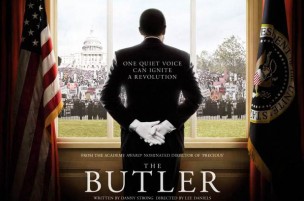“Inspired by a true story.”
It’s this common phrase that opens Lee Daniels’ recent historical drama, “The Butler.” The narrative tells the story of Eugene Allen—renamed Cecil Gaines (Forest Whitaker) in the film—and reveals the complexities of serving as a black butler in the White House during the tumultuous 1950s through the 1980s.
The key word here, though, is “inspired.”
Daniels and the film’s writer, Danny Strong, took more than a few liberties when crafting this star-studded, fictionalized biography. While I more than approve of the casting choices (Oprah Winfrey as Gaines’ wife, Gloria; Cuba Gooding, Jr. as fellow butler Carter Wilson; Robin Williams as President Dwight D. Eisenhower; and Jane Fonda as Nancy Reagan, to name a few), I can’t help but dwell on the fabrication.
Most of the details about Allen’s life are dramatized and altered for the big screen, according to a recent article written by Kevin Fallon in “The Daily Beast.” The heart-wrenching opening scenes, for instance, depicting Gaines’ broken childhood on a Southern plantation were one of the various portions reinvented for the screenplay. Daniels did this most likely so that audiences would sympathize with Gaines early on, and it worked.
Yet many other striking details are fictionalized as well. Fallon says that Allen’s wife did not struggle with alcohol and the couple had only one son; in the film, Gloria drinks heavily when she’s stressed and Gaines has two sons, both of which are tied into the emotional mess that was the Civil Rights Movement. But is this fabrication acceptable? Before I continue, I must warn you that I’m certainly no film expert. I would call myself an occasional theater-goer, and that’s generous. To be honest, I’m intimidated by all of the film-enthusiasts at Wesleyan who seem well-educated on all genres of film. Also, I confess my back sometimes hurts if I sit for too long in a theater and I don’t really like popcorn because the kernels get stuck in those hard-to-reach crevices in my teeth.
Yet as someone who appreciates a movie as a powerful art form, I actually feel comfortable discussing this controversy. Is it okay to exaggerate and bend the truth in order to vividly capture an important historical era? Is it okay to manipulate audiences in this way to provoke an emotional reaction?
To answer the former questions, it’s important to define exactly what moviegoers should acquire from a film like “The Butler.” If you ask me, movies such as this should foster a greater understanding of a historical time period. We should be able to stand in the slightly exaggerated shoes of a struggling individual. We should walk out of the theater second-guessing some decisions, sympathizing with some, and despising others. Yes, this film takes some bold liberties when it comes to the facts, but in return it accomplishes these things.
After sitting in the theater for 132 minutes, not only was my left calf asleep, but my brain, too, felt exhausted.
Allen’s life doesn’t align perfectly with that of Gaines, but it doesn’t matter. What Daniels achieves is much more powerful: he gives us raw, hard-to-chew reminders of the Civil Rights Movement. He depicts violent sit-ins, dangerous Freedom Rides, and vicious police dogs; he portrays the tremendous impact that Martin Luther King, Jr. had on the black community; he depresses us with JFK’s shocking assassination and gives us insight into the rise of the Black Panthers. And I haven’t even mentioned that he includes the Vietnam War.
For a couple of hours, I probably felt more dissatisfied with our country’s past behavior than I ever have—but I was also riveted, fascinated, and emotionally engaged with the characters. Winfrey manages to transcend her fame and take on a grieving mother and struggling wife. Gooding adds levity and a bit of humor to balance the heavy and more dramatic scenes.
Daniels doesn’t present American history like my high school textbook, but I guess I never expected him to. There are few movies that manage to engage an audience emotionally but also make them second-guess a country’s past. I won’t take everything “The Butler” shows as fact, but thanks to its impact, I’ll have a new perspective on this era.

Comments are closed